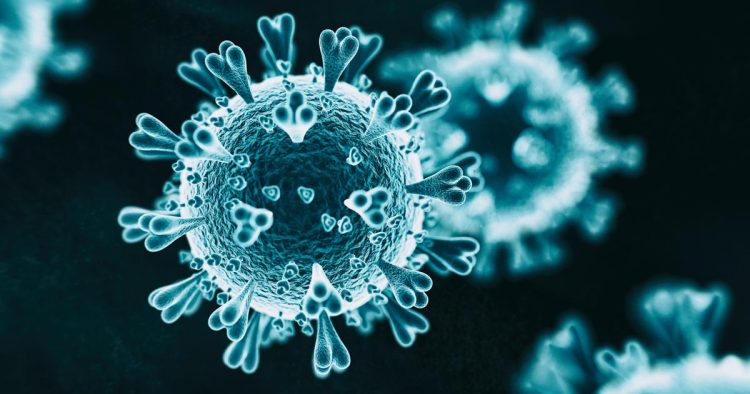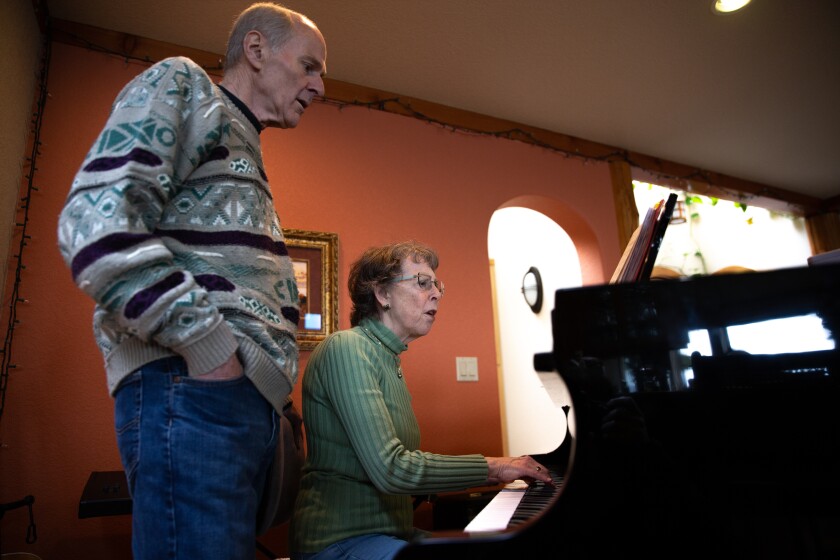 |
| CV19 link |
It awaits us to determine how we will react to crises in our lives
always with God as our helper as we work towards resolution.
- Catherine Keller, "How to think about the pandemic"


A Letter from Catherine Keller
April 2, 2020

Dear Ones,
Particularly, in this letter, ones who claim some seriously biblical, or explicitly theological, orientation. Amidst this pandemic, ones who may be wondering….
Is God punishing us?
We — the human species — certainly deserve it; we have gone way out of kilter in our most basic creaturely responsibilities. We’re out of balance, way out of sync with the wisdom, the Word, of the creation. We have taken our materiality for granted, in utter ingratitude. Isn’t this pandemic, and maybe worse to come, just what we have coming to us?
Is God testing us?
We surely are being tested, tried, exposed in our multiple vulnerabilities — challenged at our edges, both spiritual and physical. And that is not just as individuals and families and local communities. It is also our systems of life together, our economics and our politics, that are being tested. Some are failing worse than others. And our big national system is so far failing
big-time. But are we all together tested? By God?
Is God teaching us a lesson?
If so, we better learn it fast. So often, we have let the most aggressive and greedy portions of our species organize our material interactions, our global economies. Not that they asked our permission. But we who have less power have ceded much of the life of the planet, local and global, to the systems of power. We blame the powerful, but we do not reclaim the power. We have much to learn…so terrifyingly much.
Is God fixing the world?
Our carbon emissions are coming down, with millions of flights grounded. If emissions keep coming down, we might just prevent that 1.5C rise in global temperature. And pandemic can also bring down population levels, which have grown beyond sustainability. After all, the Bible teaches that it took the Great Flood to bring about a fresh start for humanity — and everything else. Almost total decline of the human population and the nonhuman ones too. Later, it took ten plagues to make Pharaoh “let my people go.” Huge collateral damage to the innocent, like Egyptian children and non-Hebrew slaves! Is our present plague the way God — like it or not — is fixing our world?

For many folks who find solace and guidance from their biblical faith, those questions must somehow be answered ‘yes.’ And this sense of divine intervention may lead them to do good, moral things. They can find biblical passages to read literally, to rip out of their context, to ignore millennia of history between an ancient text and our context, and find this kind of God who is directly and violently punishing, telling, testing, fixing.
I respect anyone’s sincere faith. But faith can get trapped in misguided interpretations. So, in the interest of the truth without which faith is an illusion — let me answer those four questions I posed.
Is the pandemic God’s punishment?
The coronavirus is having punishing effects, largely on the most vulnerable and least deserving. But “punishment” is supposed to signify justice. And yet in this and in most of the plagues of world history, the poor and the frail are the main victims. Doesn’t this make them the objects of a horribly unjust punishment? Besides, if God were the direct controlling agent of history, surely such unjust side-effects, such sloppy collateral damage, could have been avoided! Indeed, our getting to this point would never have been necessary.
God, in scripture, wants justice. So…no. God is not deploying the coronavirus to whip, execute, or otherwise punish us. Not even just to send us to our rooms like naughty children. Besides — isn’t punishment far too crude a notion for what we call God’s will?
Well then, testing us? That isn’t so punitive.
No, it’s not as punitive. But do you mean that God designed the pandemic to try our faith or our character, individual or collective? Again…no. Yes, our capacities are being put to the test as a society, as communities, as individuals — but not because God has selected this means to make folk grow better or stronger through suffering. Often, this “test” will have the opposite effect: we may grow weaker and die. Or we will fail the moral test and stock up for mere survival. Or the political system will pour maximum resources into reviving the economic system — rather than into the screaming needs of the suddenly jobless.
But then, isn’t God teaching us a lesson? Teaching us that we are all interdependent with each other — with all creatures, even with viruses?
No. Not if you mean that God has designed the disease to teach the lesson. It is too little too late, on the front of climate justice. And it is too much too fast, in the assault upon the weak. So, even if, improbably, we do collectively, globally — maybe even nationally — learn a great lesson about our togetherness as creatures, it won’t be because God has decided on pedagogy by plague.
Like it or not, you may insist: this crisis may be how the omnipotent God is now intervening to fix a sinful world. Don’t you believe that the Lord works to repair His world — whatever it takes?
Oh, I do think God works always for tikkun olam, the repair of the world. But no! Not by big destructive omnipotent interventions. No, God is no Big Fixer. The story of the flood powerfully narrates the radical new start that is possible after systemic human ugliness and tremendous natural disaster. And let us remember it is a highly condensed story, as is that of the Exodus — not a natural or literal history. Besides, the repair of the world in the Bible is a work of deep care, not careless destruction. The flood and the plagues, including COVID-19, do not care.
The God of Jesus, however, cares infinitely. And precisely for that reason, that God cannot, must not, be understood any longer as “in control,” as the omnipotent Lord who either always already determines all that is (in which case the world shouldn’t need repair in the first place); or as the One who occasionally steps in Big Time to Fix it.
Yet that is a big debate. “Theodicy” names an old theological argument about how to justify God — as just — in the face of unfair suffering. Christians often just go for the afterlife answer: whatever happens here, God will reward His own in heaven. As to this world, with its COVID-19 and other plagues — they assume it is somehow God’s will that we suffer (as punishment, as test, as lesson, as fix) and, well, it doesn’t matter anyway because I and my own are going to heaven when we die. The big supernaturalist shrug of — whatever.
So, no, I do not think that even the heavenly “out” works to relieve us of our collective human responsibility to be and do this world — better. Now.
Well, then, how is God working? Or are you saying that “God” is just a delusion of my wishful thinking or my unthinking tradition?
No, not that either! It is because we inherit some delusions about God that I offer this theological exercise. Those notions that God is an all-powerful force of control — always or when “He” deems fit — may actually obstruct God’s work in the world and in each of us. And it might be that God’s work in the world depends upon our work — precisely because the mystery called “God” is not a projection of sovereign dominance. Not something, someone, that works by top-down control.
If no, no, no, and no — how, then?

How about — by creative collaboration with the creatures?
The coronavirus is not sent as a divine punishment. But something not unrelated: in this crisis, God may well be calling us all to account, holding us responsible for the wellbeing of our world. It doesn’t mean God willed this crisis to happen — or any of the horrors and holocausts of history. It means that nothing happens apart from God, because God isn’t something that exists
apart from the world: the world is a part of God, and God participates in each part of the world. God feels and suffers it all — with us. But God also calls to us to face the meaning of this punishing plague, to face the interdependence of us all — an interdependence that our civilization conceals from us, that this contagion reveals to us.
God did not create the pandemic in order to test any of us; God didn’t create the pandemic! But perhaps we are being tested. Not by the torments of a bully God, but by invitation to rise to the occasion. To find the courage and the care that will sustain us.
And as a species, are we not being tested — to see if we might come to terms with our creaturely connections to each member of our species and to all the other species of the planet? If we fail the test, it is not that God will punish us but rather the consequences of our collective actions. It is the consequences of our actions and inactions that will bring us down. If not to the virus, then to the catastrophic effects of global warming. Coming soon. But isn’t the ultimate biblical test always and only love? If we rise to the occasion, it is because we grow in that dauntless love that casts out fear.
God is not spreading the coronavirus to teach us a lesson. The disease is the effect of imbalances between culture and nature. In this case, maltreatment of wild animals and systemic disregard for environmental regulations triggered the outbreak. But maybe God is trying to teach a lesson in and through the pandemic. Doesn’t God mean — the one who is always calling, inviting, us each and all? Trying to teach, to inspire, in the midst of whatever is happening?
Why then doesn’t the divine voice break through better? So many who declare themselves God’s spokespersons teach anything but that love — anything but the biblical love of the least, of the stranger, of every other. How can they confine love to their own community, race, religion, kind? How do they manage to drown out God’s teaching? Perhaps, because it comes in such “a still, small voice.” Might this pandemic, demanding so much sudden solitude, give us a chance to enter that stillness?
No, God is not going to fix the world through this or any disaster. So how can we hope for repair of the world? Certainly not by waiting for God to do it for us. Not by ignoring the spirit of wisdom that whispers, that breathes, within each of us always. Each of us individually.
But each, only in our all-togetherness — human, animal, vegetable, mineral. That togetherness takes on new meanings now, in all the layers of planetary interdependence, deadly or benign, oppressive or just, at home or in public. Now, as we learn that social distance does not mean separation, right in the midst of catastrophe, that Spirit might turn you, turn me, turn us together — into catalysts of transformation.
We might not fix much that is already too badly broken. But in a new, dark hopefulness, might we become creative collaborators? Even with the Creator, the one who triggers the simplest matter and the subtlest minds to new creation?
This is not a story of top-down creating. This new creation comes as we cooperate with each other and with the divine source of every other. This is new creativity in and through whatever chaos besets us. The chaos might feel like the Apocalypse. But remember that apokalypsis, at least in the Bible, does not mean The End of the World. It means revelation: not a final closing down, but a great dis/closure.
In whatever chaos we experience, we recycle everything that we can: ecologically and socially, democratically and theologically. We do not wait for a dictatorial fix from on high. We enter into creative collaboration in a process we can neither predict nor control. For the process of the new creation remains mysterious. “The new heaven and earth” translate no longer as supernatural intervention or afterlife escape — but as the radical renewal of atmosphere and earth.
I hope each of the four no’s have morphed into an odd kind of yes. Into affirmations of something of what you — you wondering ones — already deeply sense, feel, consider. And begin to do.
Love,
Catherine
March 2020



![Faith in a Time of Pandemic (Topical Line Drives Book 39) by [Bruce G. Epperly]](https://m.media-amazon.com/images/I/41yEH6RhPYL.jpg)





![The Uncontrolling Love of God: An Open and Relational Account of Providence by [Thomas Jay Oord]](https://m.media-amazon.com/images/I/41vRXeSobUL.jpg)



















